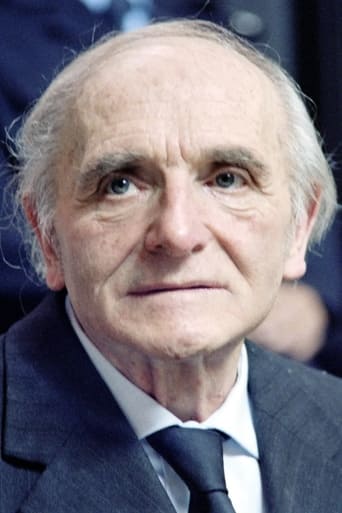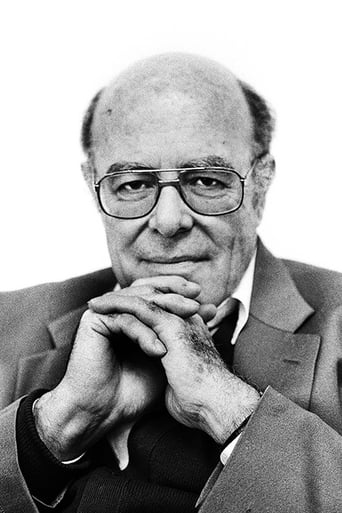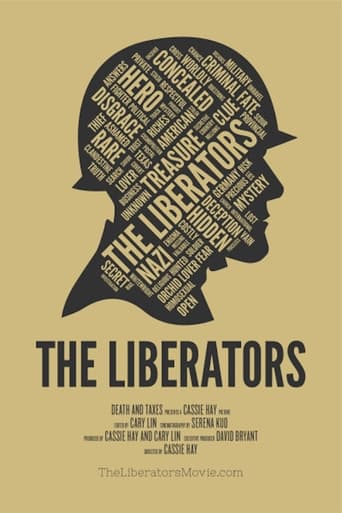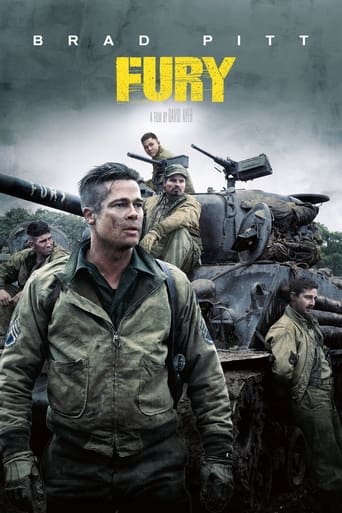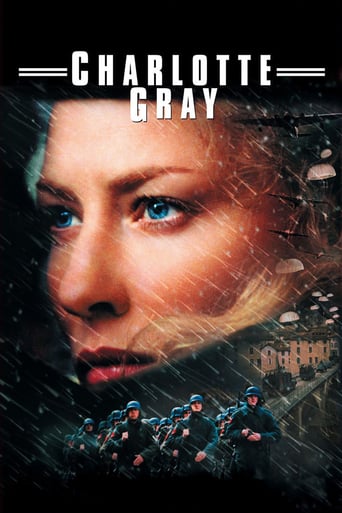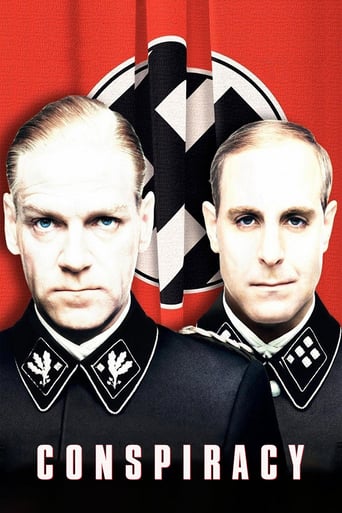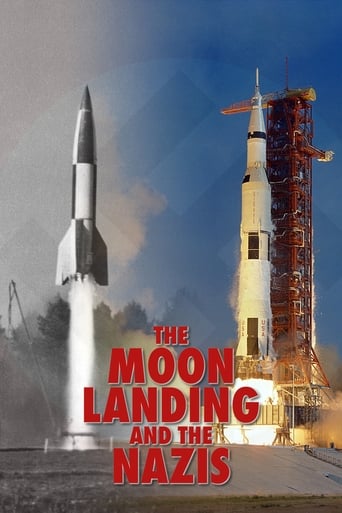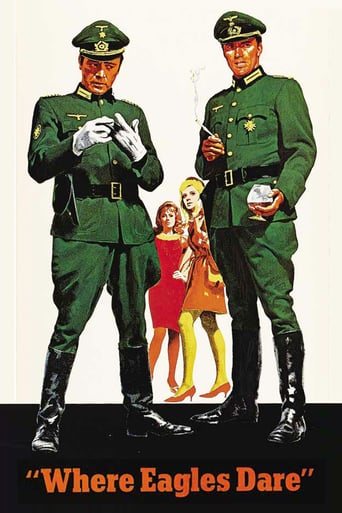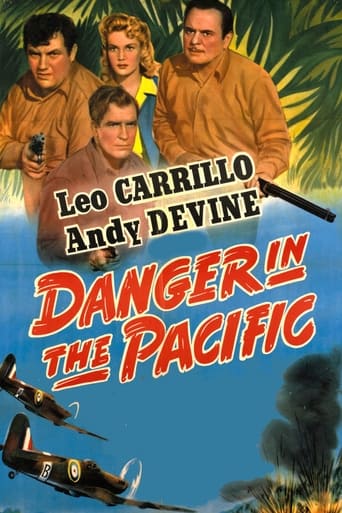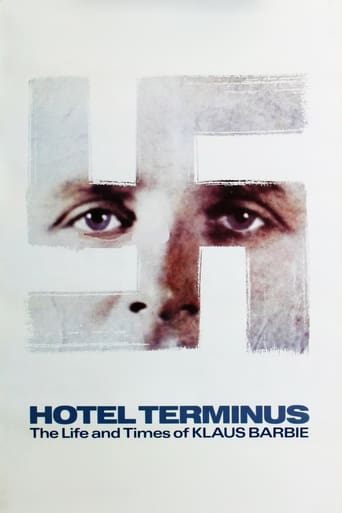
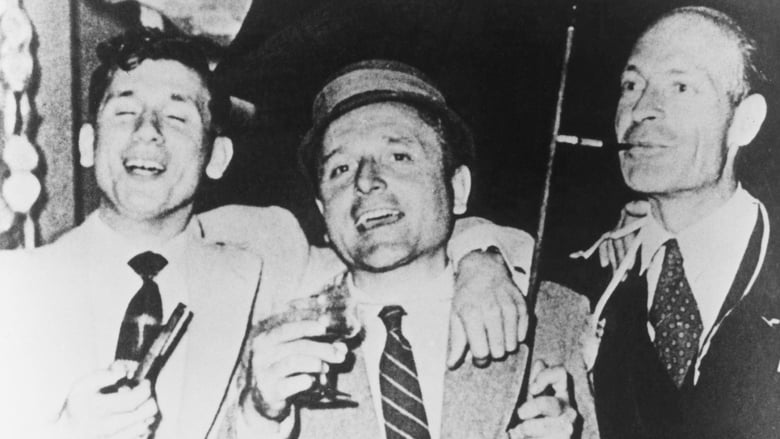
Hôtel Terminus: The Life and Times of Klaus Barbie (1988)
Marcel Ophuls' riveting film details the heinous legacy of the Gestapo head dubbed "The Butcher of Lyon." Responsible for over 4,000 deaths in occupied France during World War II, Barbie would escape—with U.S. help—to South America in 1951, where he lived until a global manhunt led to his 1983 arrest and subsequent trial.
Watch Trailer
Cast


Similar titles
Reviews
Overrated
Good concept, poorly executed.
Like the great film, it's made with a great deal of visible affection both in front of and behind the camera.
An old-fashioned movie made with new-fashioned finesse.
This is a French documentary about the sadistic Gestapo commander in Lyon, who captured Jean Moulin, the leader of the French Resistance, during WWII, and tortured and deported a load of other people along the way. Fascinating premise, too bad the result is as exciting as reading a phone-book. Seriously, all you get here is an uninterrupted strain of random people talking in the most monotone and grammatically convoluted way, with no context and no emotion whatsoever. Every single person interviewed, but particularly the director, M. Ophuls, are such boring self-indulgent drags. They seem to enjoy just listening to themselves instead of trying to engage the audience by conveying something other than an exaggerated love for their own mother tongue. Take for instance this question posed to Moulin's former secretary by Ophuls while the camera focuses on himself: "But isn't it incredibly arrogant to try to form an opinion to presume to judge the fragility of the behavior of people who were submitted to torture, or who have... who have, been submitted to torture or, or who have been threatened to be tortured?" Of course in French this takes almost twice the time to spell out. And then it cuts away to him (Ophuls) posing another question to another guy, always in that same overstretched, convoluted and elliptic fashion. The first 30 minutes are spent contrasting the testimonies of different people who disagree as to who was the whistle-blower for Moulin's arrest. But it's so horribly BORING. They might as well be neighbors arguing over who let the garbage bin open for stray dogs to make the sidewalk dirty, when in fact they are discussing matters of life and death. Very, very poor result for such a fascinating premise. I had high expectations for this documentary and was completely disappointed.
German-born American documentary filmmaker Marcel Ophüls' fourth documentary feature which he wrote and produced, was screened in the Un Certain Regard section at the 41st Cannes International Film Festival in 1988 and is a France-USA co-production. It tells the story about 44 children from a Jewish orphanage in Izieu, France and the collaborators, friends, enemies, supporters, accomplices and victims of a husband and father of two who began his long-lasting career as a Nazi during the early 1930s in Germany and the acts he committed by himself and was helped to commit against humanity.This somewhat biographical, historic, political and comprehensive post-war Germany story which is narrated from multiple viewpoints, in an objective way and through the voices of survivors of torture, former leaders of the former French Resistance, former members of the former Counter Intelligence Corps in the United States, former activists, attorneys, journalists and people who experienced WWII and it's aftermath, is an informative and incisive examination of French and German history, war crimes, the displacement of guilt and an investigative journey through the places where the main character grew up, studied, took up residence and carried out clandestine operations.This multilingual, conversational and important non-fictional feature is impelled and reinforced by it's interrelated stories, the absence of visual effects, of the subject himself, the director's presence, his way of conducting interviews and the presence of the interviewees who as much as the filmmakers are the creators of this documentary. An unsettling, heartrending, revealing and disenchanting documentary feature from the late 1980s which gained, among other awards, the Academy Award for Best Documentary Feature at the 61st Academy Awards in 1989 and the FIPRESCI Prize at the 41st Cannes Film Festival in 1988.
Marcel Ophuls, son of esteemed film director Max Ophuls, directs "Hotel Terminus", an award winning documentary about Nazi war criminal Klaus Barbie. Beginning in childhood, and therefore innocence, and ending with Klaus becoming "the Butcher of Lyon", the film traces Klaus' life by assembling over forty years of footage and interviews culled from over 120 hours of discussion with former Nazis, American intelligence officers, South American government officials, victims of Nazi atrocities and witnesses.A Gestapo Chief in Lyon, Klaus was responsible for torturing and murdering resistance fighters, Jewish men, woman and children, and had thousands deported to Hitler's death camps. After the war, like many German and SS officers, he was protected by and worked with the US Army, who hid him in Bolivia where he lived for 3 decades as a business man. It was only in 1987, when the Cold War was drawing to a close, and with it Klaus' usefulness to the US, that Klaus was brought to trial in a French courtroom for crimes against humanity.Ophuls paints a truly complex portrait of evil, his film highlighting how responsibility is diffused in hierarchal structures, how Communist paranoia resulted in many Nazi officers being willingly absorbed by the amnesic Allies, and delineating the various forces which allowed Klaus to survive after the war. A stand out scene involves Ophuls (himself German born) revealing his Jewish identity to an associate of Klaus, but much of this 4 and a half hour documentary is rather low key, revoking easy sensationalism for an objective, probing tone.Surprisingly, the film has a comedic streak, Ophuls pointing out the inconsistencies in testimonies, undermining the statements of various German officers with clever quips and using German folksongs as an ironic counterpoint to several scenes. 9/10 – Worth one viewing. Makes a good companion piece to Ophuls' "The Sorrow and the Pity". See "The Conformist".
What an infuriating documentary. Actually, as I write this, it has been almost exactly ten months since Al Qaida flew two passenger jets into the World Trade Center. A shocking event which killed more than two thousand innocent people and forever altered the skyline I admired so much as a kid. I wondered at the time if any entrepreneurs would have the chutzpah to somehow turn this appalling thing into a marketing gimmick and concluded that no one would. But I was wrong. Six months after the fact, ads began cropping up for medals made out of the actual steel frames of the collapsed towers. Little by little, other somber commercials appeared. Some brokerage firm now has TV commercials featuring real-life, actual SURVIVORS of the tragic WORLD TRADE CENTER catasrophe! The survivors, their pockets stuffed full of cash, face the camera and tell us of their experiences, ending with the conclusion that the best way to fight terrorism is to go right on working and to invest with Salomon Smith Barney or whomever. I'm afraid "Hotel Terminus" generates the same feeling, a mixture of anger and disgust. The deportation, imprisonment, and murder of Jews and other minorities is far too horrifying an historical fact to serve as a vehicle for such an on-screen display of self righteousness. Ophuls did a superb job in "The Sorrow and the Pity," mainly by letting the participants and the newsreels speak for themselves about a situation filled with ambiguities. And how eloquent those sources were! Here, we get way too much of Marcel Ophuls telling us what we're supposed to be thinking and feeling, and about a situation in which good and evil were relatively clear cut. It isn't that his self display fails to be engaging. He's a good performer. Searching for an unwilling interviewee, he wanders through the guy's garden patch, lifting cabbage leaves and asking, "Are you under here?" And he does a splendid reenactment of a telephone call to another prospective interviewee, playing both parts. Those participant who agreed to be interviewed do a pretty good job of hanging themselves, by the way. One of them comes up with something like, "Oh, yes, Barbie wasn't a bad fellow. He loved his dog." (No kidding.) It would have been fine if Ophuls had left it at that, although a viewer might understandably wonder how many snippets of conversation had been edited out, and what they consisted of. Weren't there any good guys at all? Can an entire population be so stupid and unfeeling? And Ophuls ridicules on camera those witnesses were were unwilling to speak to him about the carryings on that they clearly feel guilty about, or at least ashamed of, because, as they frequently argue, it all happened so long ago. What does Ophuls expect of them? That they should "come forward" like guests on Oprah Winfrey? If they could ablate their memories as easily as Ophuls can edit his film, they would surely do it.One scene is especially irritating. On camera Ophuls visits a house or hotel that Barbi presumably once lived in. The proprietor emerges and begins to speak to Ophuls. The only language he knows is French. (Ophuls is equally good in French, German, and English.) As Ophuls begins to throw him some change-ups, though, the proprietor begins to back off, saying he'd rather not talk anymore. Ophuls then begins shouting accusations at the guy -- in ENGLISH. The guy is backing dumbly away, with occasional protests, while Ophuls screams things like, "The reason you don't want to talk is that you KNOW he lived in your house," and so on. Well -- this isn't an interview. This is Marcel Ophuls playing Yaweh for the rolling cameras, for the English-speaking audience.It will be a sad day for the entrepreneurs when all of the participants and witnesses to these events have grown old and died. There will be no one left alive to humiliate and to blame. We'll need to start all over again, with only the historical record providing us with a guidebook about what not to do next.


